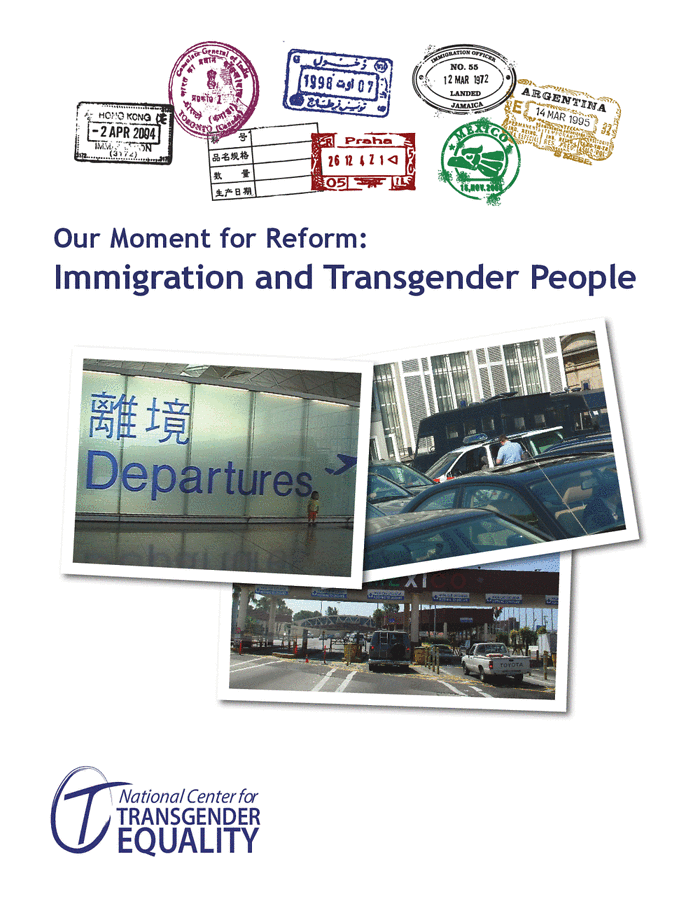
Undocumented transgender immigrants in the United States are among the most vulnerable to discrimination and violence in employment, housing, healthcare, and opportunities for citizenship under current U.S. immigration law, according to a new report being released Friday by the National Center for Transgender Equality.
"It is more difficult to be an immigrant who is a trans person," Johanna Vasquez, 32, told BuzzFeed, speaking through a translator. "They treat you differently when you are detained."
Vasquez fled El Salvador at age 16, after she was beaten and raped by community members who tormented her for being transgender. She missed the one-year asylum filing deadline. After 12 years, she was detained by authorities and placed in a detention facility where she was beaten and sexually assaulted.
Without legal defense, she was deported back to El Salvador in 2009, then returned to the U.S. where she spent seven months in a detention facility, before she was deported again. After returning to the U.S., she obtained the help of a public defender, who obtained a withholding of her removal.
"You are put in a cell where you are by yourself and experience a lot of violence that straight people or cis[gender] people do not experience, but you experience when you are a trans woman," she said of her time in detention.
Just days after House Democrats released new comprehensive immigration reform legislation, advocates at NCTE and dozens of partnering labor and immigration rights organizations involved in the report are calling on lawmakers to pass "common sense" reforms that they say would ensure the safety and security of an estimated 10,000 to 50,000 transgender immigrant adults living in the U.S. as non-citizens.
Undocumented transgender immigrants, many of whom have fled their countries to escape anti-LGBT violence and persecution, are sometimes at greater risk of danger and inequality living in what advocates call a "double minority status," which creates barriers to their success in the United States, they said.
The report paints a bleak picture for undocumented transgender immigrants by building on data from the 2011 National Transgender Discrimination Survey, which found that 39% of undocumented transgender people lost their jobs due to bias and faced higher rates of physical violence in the workplace and when seeking medical services. In addition, 36% reported having no health insurance and reported more than twice the rate of HIV infections as the transgender population as a whole.
"We have a lot of trans people who are in this country specifically because they are trans people and they are simply not safe where they were and they come here and then they're [still] not safe," said Mara Keisling, executive director of NCTE in an interview with BuzzFeed. "I'm sorry but that is what this country is for. This country has always been a place where people can come to be safe."
But under current immigration law, many undocumented immigrants — like Vasquez — face deportation or detention if they miss the one-year deadline to file for asylum. And for transgender people, that could mean being forced into segregated detention similar to solitary confinement or being forced to return to danger in their home countries, according to the report.
As comprehensive immigration reform legislation stalls in Congress, Keisling, and other immigration advocates are demanding lawmakers enact reforms that create more realistic pathways to citizenship for undocumented immigrants.
A bill passed by the U.S. Senate in June would allow the over 11 million undocumented immigrants to gain temporary legal status within six months. The bill also established a pathway to citizenship that would take up to 13 years for many immigrants and would impose substantial fees and fines. The Senate legislation also includes the DREAM Act, which would accelerate citizenship for young people who entered the country before the age of 16, have lived in the U.S. for at least five years, and have completed a high school or GED education or served in the military.
House Democrats introduced a similar bill Wednesday, which leaves out a provision for a $46 billion border security plan that would deploy thousands of agents to cover 100% of the U.S./Mexico border, but it remains to be seen if the bill will go anywhere, as House Speaker John Boehner (R-Ohio) has not yet scheduled it for consideration.
"For trans people, there's some wonderful things in there," Keisling said of the Senate bill. "I think, first of all, you just have to understand that anything that's good for immigrants in general is good for trans people because trans people are immigrants and immigrants are trans people."
Keisling and other advocates are hopeful reform will move forward, but are aware of the partisan stalemate currently on Capitol Hill.
"There are immigrants in Congress," Keisling said. "That certain people are holding this up for political reasons just to keep people voting for them scared is just so un-American, unconscionable, inhumane, and bad."
Transgender advocates hope the new report will inject a transgender voice into the immigration debate and will help to educate lawmakers, other community organizations, the LGBT community, and allies across the country.
And while the report concedes that creating immigration reform that will benefit transgender immigrants will not create full equality for transgender people, Keisling said it is about continuing the fight at all levels and that allowing discrimination in any area would undercut work advocates are doing in other contexts, such as federal employment discrimination protections.
For immigrants like Vasquez, any step toward reform is a welcome improvement. Today, she volunteers to help other transgender immigrants at Make the Road New York, and LGBT activism group.
"They need the help of organizations and others because if they are doing this process on their own, then it's very difficult and I had a very hard time for a while because I didn't have the help of organizations," Vasquez said. "When I suffered my second violation after being deported again, I almost gave up and I would advise someone else to keep fighting because if you are deported, you have given up."

